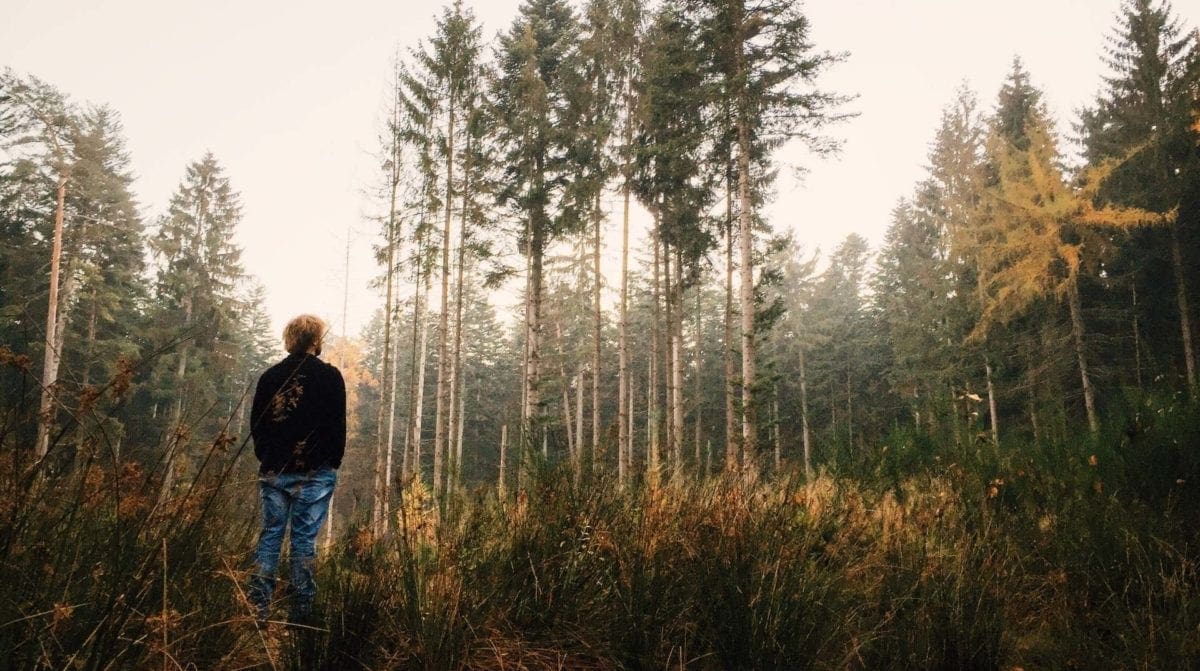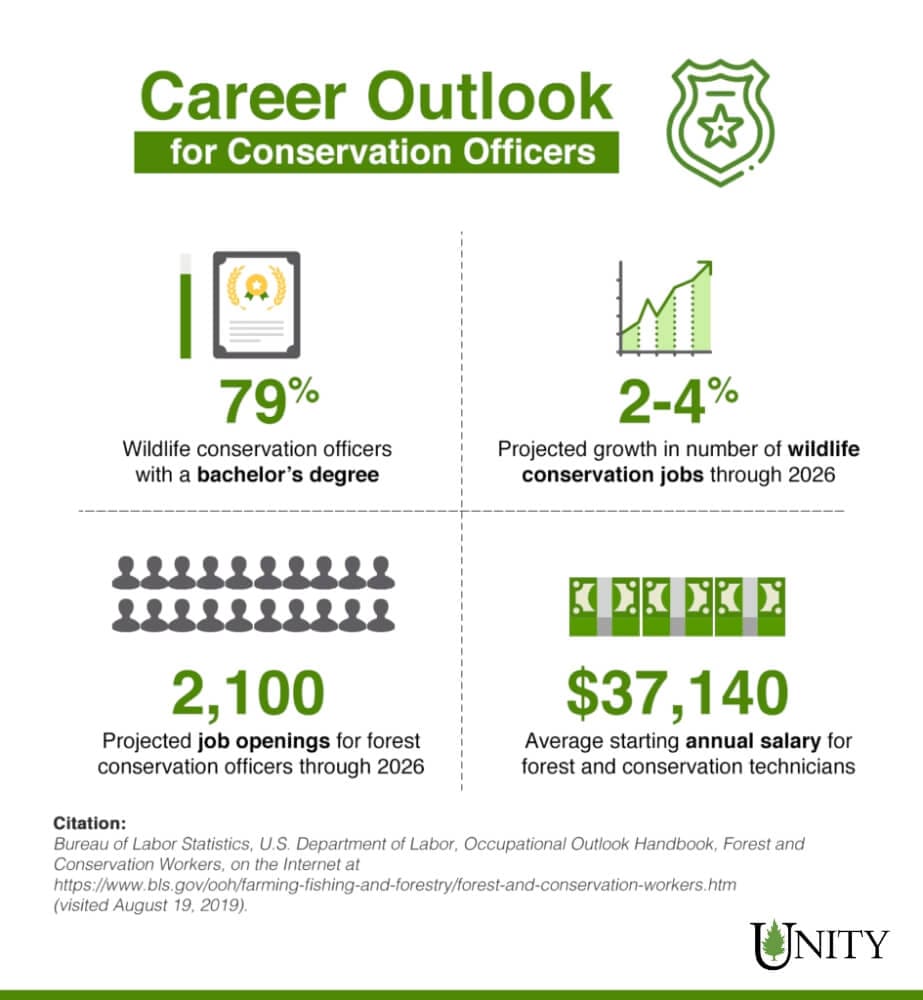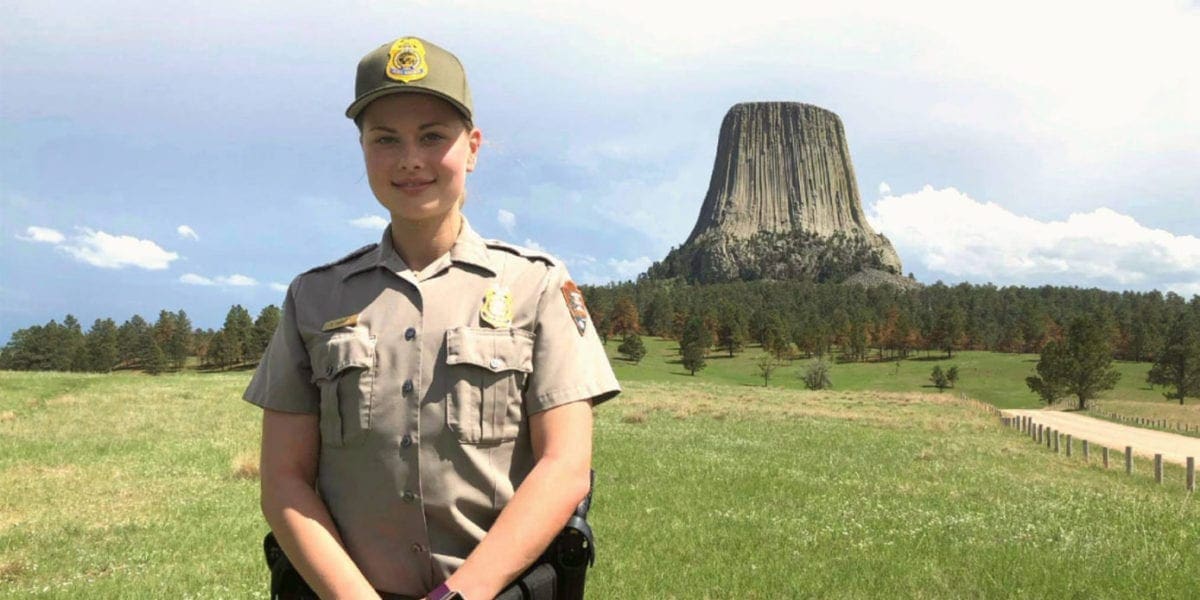
How to Become a Conservation Officer
You’re at your best when you’re outside in the fresh air, so much so that you can’t imagine spending eight hours a day trapped indoors at work. A day spent in a cubicle staring at a screen sounds unbearable to you, which is why you’re exploring your outdoor career options.
A career as a conservation officer should be on the radar of anyone who has a love of nature and being outside. These law enforcement officers specialize in protecting people, wildlife and natural resources in the great outdoors.
We’re breaking down all the details of this career, including what conservation officers do and how to become a conservation officer. Discover what it’s like to work as a wildlife conservation officer with this comprehensive guide.
What is a wildlife conservation officer?
Being a wildlife conservation officer involves more than hiking through the woods and enjoying the weather. Wildlife conservation officers are fully trained law enforcement officers who have the authority to enforce laws and the responsibility to protect people and wildlife. Their goal is to ensure that people and nature can coexist peacefully, without bringing harm or disturbance to people, animals or the environment.
Wildlife conservation officers may go by different job titles depending on their location, including forest resource specialist, geographic information systems coordinator or forest and conservation workers, according to ONET. Wildlife conservation officers can work for their state government as part of their Department of Natural Resources (DNR), or at the federal level working in wildlife refuges across the nation.
Wildlife conservation officer job description
Conservation officers can have various specializations or be assigned to patrol a specific region. In some places, they might share duties with fish and game wardens, stopping poachers and others who violate wildlife laws.
Regardless of where they work, most conservation officers share some common job duties, including these, according to ONET and the Bureau of Labor Statistics (BLS):
- Enforce land management laws and hunting and fishing regulations
- Maintain state or national parks and campsites
- Perform fire prevention duties
- Use and maintain special equipment, like diggers or chainsaws
- Survey areas to identify people who are breaking the law and respond to complaints
- Issue citations to violators
- Respond to reports of wildlife endangering humans
- Write and file reports
You can see that many of a conservation officer’s job duties are similar to other law enforcement officers. Those who are interested in this career must be comfortable exercising their authority to keep others safe, and potentially even removing dangerous animals to protect human lives—which can be one of the hardest parts of the job.
“A lot of the job deals with problem wildlife. You have to be tough because you are putting a lot of animals down,” says conservation officer Bob Hamilton in an interview with the College Foundation of North Carolina (CFNC).
Where wildlife conservation officers work
Most wildlife conservation officers work for state or federal governments, though some may also work in the forestry industry, according to the BLS. As you might have guessed, conservation officers spend much of their time outdoors in all types of weather conditions. Conservation officers must be prepared to stay safe in their particular climate, from the mountains or forests in winter to the desert in summer.
Though these professionals spend plenty of time outdoors, there are still duties that take them inside. Some conservation officers lead hunting safety courses for their community, and all of them need to attend department meetings and file required reports and other paperwork. Wildlife conservation officers also experience more varied work hours than a typical 9-to-5 job offers. Hamilton shares that conservation officers may need to be on call to respond to emergencies in the middle of the night—which also happens to be prime time for catching poachers, such as those who use bright lights to illegally hunt at night.

Conservation officer qualifications
These specialized law enforcement officers require a deep knowledge of the natural world, along with the legal requirements, any officer of the law must meet. This includes passing firearms training courses, having a clean record free of felonies or major traffic violations in your state and possibly completing a peace officer training course.
Conservation officers also need to be in fairly good shape. Much of the land they’re in charge of patrolling will take them off the beaten path, so they should be able to walk or hike while carrying supplies or equipment to areas where trucks, ATVs or snowmobiles can’t reach.
Even if you have all of these qualifications on paper, you still need to make sure you have a personality that’s a good fit for the job. In his interview with the CFNC, Hamilton shares that “you have to be a special person to do it. You have to be able to take the pressure, deal with criticism, work independently and be thick-skinned.”
How to become a conservation officer
Conservation officers who have the qualifications above, including a valid driver’s license and high school diploma, are eligible to apply for the job. Although a bachelor’s degree isn’t technically necessary, wildlife conservation positions can be competitive. Having a degree in geology, biology or criminal justice can prove that you have the background knowledge to be successful in this field.
Candidates who are accepted undergo additional training in firearms safety, peace officer training, and environmental management specific to their region. They may also have on-the-job training, working alongside an experienced conservation officer.
Do you have what it takes to be a wildlife conservation officer? With your love of the outdoors, the wildlife conservation officer job description might be right up your alley!
Degree Programs





